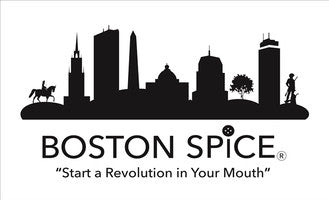Boston Life: 17th Century

Life in colonial Boston, Massachusetts in the 17th century was characterized by a unique blend of challenges, hardships, and opportunities. As one of the earliest European settlements in North America, Boston played a crucial role in shaping the culture, economy, and governance of the Massachusetts Bay Colony. Here's an overview of life during that time:
-
Settlement and Expansion: The Massachusetts Bay Colony was founded in 1630 by a group of English Puritans seeking religious freedom. Boston, originally known as Trimountaine, was established as its capital. The settlement grew rapidly, attracting more settlers from England and other colonies, and the population expanded over time.
-
Puritan Society: The Puritans dominated colonial Boston's social and religious life. They believed in a strict moral code and theocracy, with the Bible serving as their guide. Church attendance was mandatory, and the community closely monitored individuals' behavior. Non-Puritans, including Quakers and other dissenters, faced persecution.
-
Economy: The economy of colonial Boston was primarily based on trade, agriculture, and fishing. The region's natural resources, such as timber, fish, and furs, attracted merchants and shipbuilders. Boston Harbor became a vital port, connecting the colony with other parts of the world. Agriculture included crops like corn, wheat, and vegetables, with some livestock farming.
-
Daily Life: Daily life in colonial Boston revolved around family, work, and religion. Most families lived in modest wooden houses, and the town's layout was centered around meetinghouses and the marketplace. Men usually worked in trades such as blacksmithing, carpentry, or fishing, while women focused on household chores and child-rearing.
-
Education: Education was highly valued in Puritan society. The colony established the Boston Latin School in 1635, one of the earliest public schools in the American colonies. The primary goal was to teach children to read and understand the Bible. Higher education was pursued at Harvard College, founded in 1636.
-
Government: The Massachusetts Bay Colony was governed by a combination of the General Court and a governor, who were elected by church members. Only church members had the right to vote or hold office. The colony followed Puritan laws and implemented strict moral codes, enforcing rules on Sabbath observance, morality, and education.
-
Colonial Conflicts: Colonial Boston faced conflicts both internally and externally. Disputes arose between religious factions, leading to events like the Antinomian Controversy and the Salem Witch Trials. The colony also had conflicts with neighboring Native American tribes and engaged in wars, such as the Pequot War (1636-1638) and King Philip's War (1675-1678).
-
Intellectual and Cultural Development: Despite the religious emphasis, Boston became a center for intellectual and cultural growth. Books, ideas, and scientific discoveries from Europe influenced the community. Notable figures emerged, including theologian Cotton Mather and scientist Benjamin Franklin, who were born in Boston during this time.
It's important to note that this overview provides a general understanding of life in colonial Boston during the 17th century, but specific experiences and perspectives varied among individuals and social groups.
